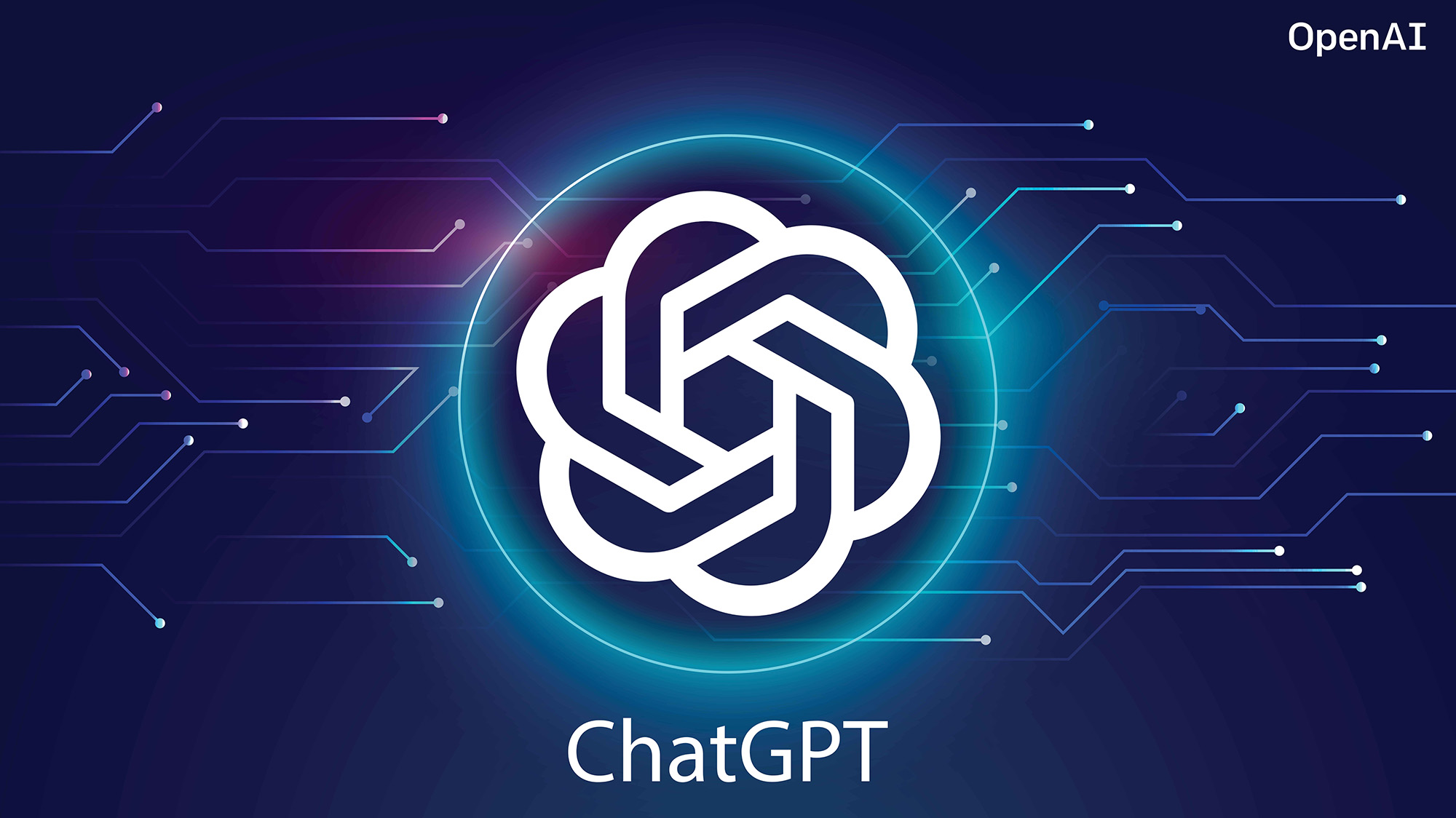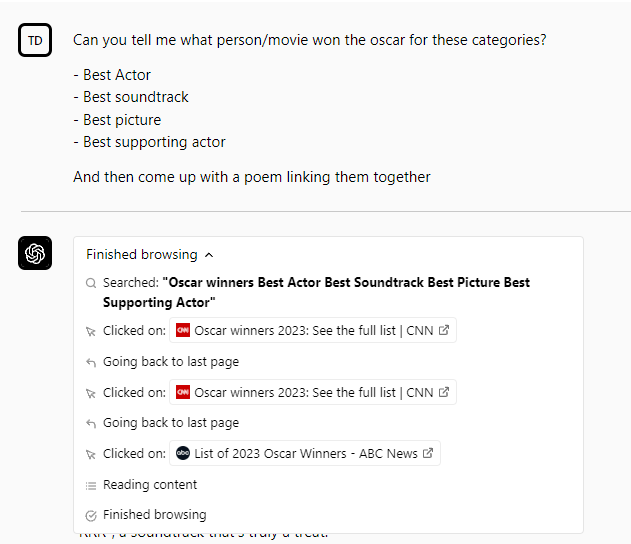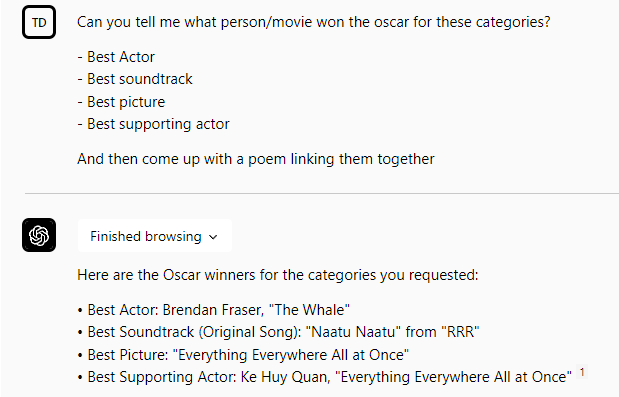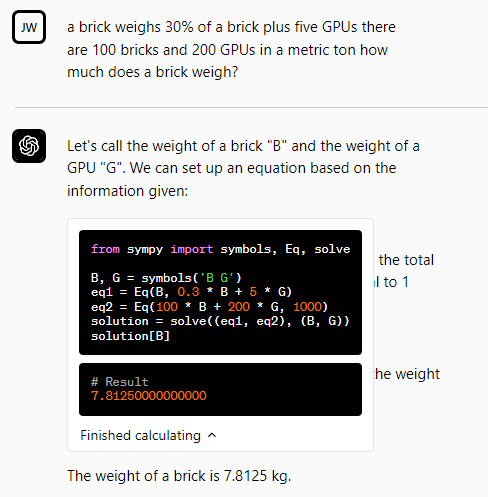
San Francisco-based OpenAI has announced that it has begun to gradually roll out plugins for ChatGPT.
One of the new plugins offers access to third-party knowledge sources and databases from within the chatbot. It’s worth noting that the plugin will initially be available in alpha to developers and subscribers of OpenAI’s premium ChatGPT Plus plan. “We plan to roll out larger-scale access over time,” wrote OpenAI.
The new plugin allows the chatbot to browse the internet, expanding the amount of content and information it can discuss, going beyond the training models to new information from the present day.
One of the main drawbacks of ChatGPT is that it is trained on information until the year 2021. The new web browser plugin can retrieve recent information, and as an example, OpenAI asked ChatGPT a question about the recent Oscars.
OpenAI acknowledges that a web-enabled ChatGPT could perform undesirable behaviours, such as sending fraudulent and spam emails, bypassing safety restrictions, and increasing the capabilities of bad actors. Nevertheless, the company has implemented several safeguards to prevent such behaviours. “This scopes the browsing plugin to be useful for retrieving information, but excludes “transactional” operations such as form submission which have more surface area for security and safety issues.” wrote OpenAI.
“Browsing retrieves content from the web using the Bing search API. As a result, we inherit substantial work from Microsoft on (1) source reliability and truthfulness of information and (2) ‘safe-mode’ to prevent the retrieval of problematic content. The plugin operates within an isolated service, so ChatGPT’s browsing activities are separated from the rest of our infrastructure.”
In addition to the browser plugin, OpenAI is also introducing a “Code Interpreter” plugin that can use Python, handle uploads to ChatGPT and download the results. According to OpenAI, use cases where using code interpreter is especially useful are:
- Solving mathematical problems, both quantitative and qualitative
- Doing data analysis and visualization
- Converting files between formats
OpenAI aims to develop more plugins and wants to bring them to a broader audience in the future. Check out OpenAI’s blog post about the plugins here.
Image credit: OpenAI, Shutterstock
Source: OpenAI
MobileSyrup may earn a commission from purchases made via our links, which helps fund the journalism we provide free on our website. These links do not influence our editorial content. Support us here.






